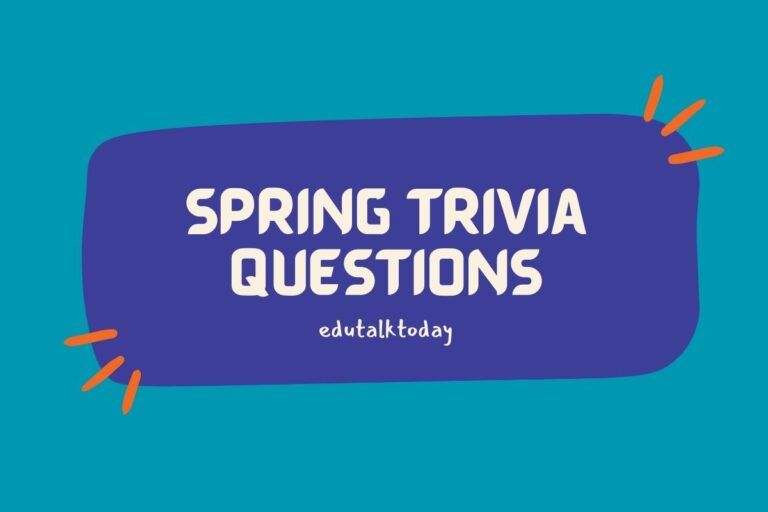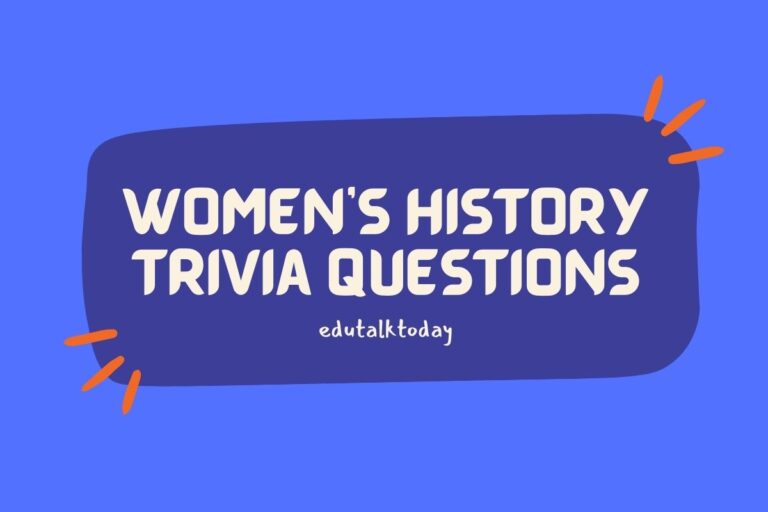41 France Trivia Questions

France, a country renowned for its rich history, diverse culture, and exquisite cuisine, has long captivated the imagination of travelers worldwide.
From the romantic mystery of Paris to the picturesque countryside, every corner of France offers stories waiting to be discovered.
As we embark on a journey through the fascinating realms of French trivia, let’s delve into the intricate details that make France a beloved destination.
Join us as we unravel the mysteries, quirks, and cultural nuances that define this enchanting nation, one question at a time.
France Trivia Questions
- What was the primary reason King Louis XVI called the Estates-General meeting in 1789, which eventually led to the French Revolution?
- Which French city is known as the capital of the Alsace region and has a rich history that includes a blend of French and German culture due to its location?
- Can you name the French explorer who claimed what is now Canada for France in 1534?
- The construction of which famous French landmark began in 1887 and was initially criticized by some of France’s leading artists and intellectuals for its design?
- Who was the first Emperor of France, crowned in 1804, and is known for his significant military achievements and the legal reform known as the Napoleonic Code?
- What is the name of the French national holiday celebrated on July 14th, commemorating the Storming of the Bastille in 1789?
- In which battle of 1815 did Napoleon Bonaparte face his final defeat, marking the end of his rule as Emperor of France?
- The Lascaux Caves, discovered in 1940, are famous for their Paleolithic cave paintings. In which French region are these caves located?
- Which French author, known for his series of novels “Les Rougon-Macquart,” is considered a principal founder of the literary school of naturalism?
- What is the name of the treaty signed in 1951 that established the European Coal and Steel Community, a precursor to the European Union, and included France as one of the six founding members?
- Which French mathematician and physicist is often credited with founding the field of probability and has a famous wager named after him concerning the belief in God?
- What is the name of the French overseas territory in South America?
- During which century did the French Wars of Religion take place, primarily between French Catholics and Huguenots (French Protestants)?
- What is the name of the longest river in France?
- Who is the renowned French fashion designer credited with popularizing the “little black dress” and the use of jersey fabric in women’s fashion?
- In what year did France host its first FIFA World Cup, and who won the tournament?
- What is the name of the French scientist who discovered radium and polonium, and was the first woman to win a Nobel Prize?
- Which French king is known as “the Sun King” and for his extensive building of the Palace of Versailles?
- What French culinary term is used to describe a method of food preparation that involves cooking food slowly in a vacuum-sealed bag in water at a precise temperature?
- Which French philosopher is famous for the statement “I think, therefore I am”?
- What is the official name of the law passed in 1905 that established the separation of church and state in France?
- Who was the French queen known for her extravagance and for being a major figure during the French Revolution, ultimately executed by guillotine in 1793?
- Which French city is recognized as the wine capital of the world?
- Name the French car manufacturer that was founded in 1899 and is known for its role in the development of the modern automobile.
- What massive engineering project completed in 1994 connects France and the United Kingdom under the English Channel?
- Who is the famous French artist known for his impressionist paintings of water lilies?
- What is the highest mountain peak in France?
- What French invention, crucial to modern cinema, was introduced by the Lumière brothers in 1895?
- Who was the French ruler during the Hundred Years’ War known for his victories at the Battle of Crécy and the Battle of Poitiers?
- Which French island, birthplace of Napoleon Bonaparte, is located in the Mediterranean Sea?
- In French cuisine, what is the term for a stewed vegetable dish that originated in Nice and is often served as a side dish?
- What is the name of the French national anthem, adopted in 1795?
- Who is the French novelist and playwright who wrote “Les Misérables” and “The Hunchback of Notre-Dame”?
- What major French engineering feat was completed in 1869, significantly reducing maritime travel time by connecting the Mediterranean Sea to the Red Sea?
- Which French philosopher developed existentialism, a movement emphasizing individual freedom and choice, in the 20th century?
- What was the name of the French royal residence and fortress that served as a prison, whose storming in 1789 marked the start of the French Revolution?
- In which French region would you find the historical province known for its tapestries and battle during World War II, Normandy?
- What French law, passed in 2004, prohibits the wearing of conspicuous religious symbols in public schools?
- Who is the renowned French impressionist painter known for his series of paintings depicting the Rouen Cathedral at different times of day and in various weather conditions?
- Which French city hosted the 1992 Winter Olympics, famous for its ski resorts and part of the Rhône-Alpes region?
- What French term describes the government’s policy of intervention in the economy and control over economic sectors, characteristic of France’s approach in the 17th and 18th centuries?
Answers
- To address the financial crisis and discuss solutions to the state’s debts and fiscal issues.
- Strasbourg.
- Jacques Cartier.
- The Eiffel Tower.
- Napoleon Bonaparte.
- Bastille Day.
- The Battle of Waterloo.
- Dordogne.
- Émile Zola.
- The Treaty of Paris.
- Blaise Pascal.
- French Guiana.
- The 16th century.
- The Loire.
- Coco Chanel.
- 1938, and Italy won the tournament.
- Marie Curie.
- Louis XIV.
- Sous-vide.
- René Descartes.
- The Law of 1905 on the Separation of the Churches and the State.
- Marie Antoinette.
- Bordeaux.
- Renault.
- The Channel Tunnel, also known as the Chunnel.
- Claude Monet.
- Mont Blanc.
- The cinematograph.
- King Edward III of England.
- Corsica.
- Ratatouille.
- La Marseillaise.
- Victor Hugo.
- The Suez Canal (though primarily a French initiative, it’s not in France but connects through territories controlled by France at the time).
- Jean-Paul Sartre.
- The Bastille.
- Normandy.
- The French law on secularity and conspicuous religious symbols in schools.
- Claude Monet.
- Albertville.
- Colbertism, after Jean-Baptiste Colbert.






